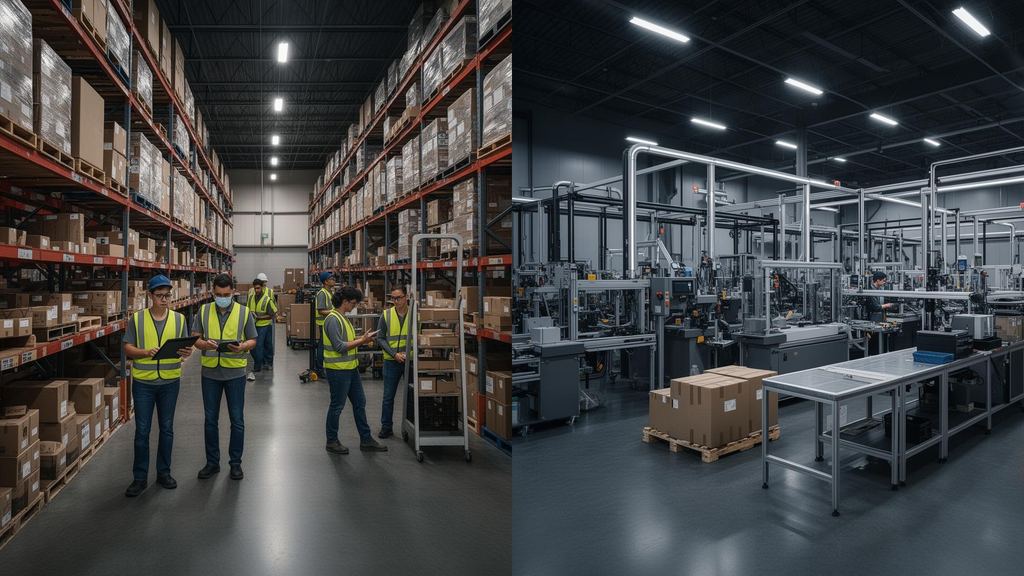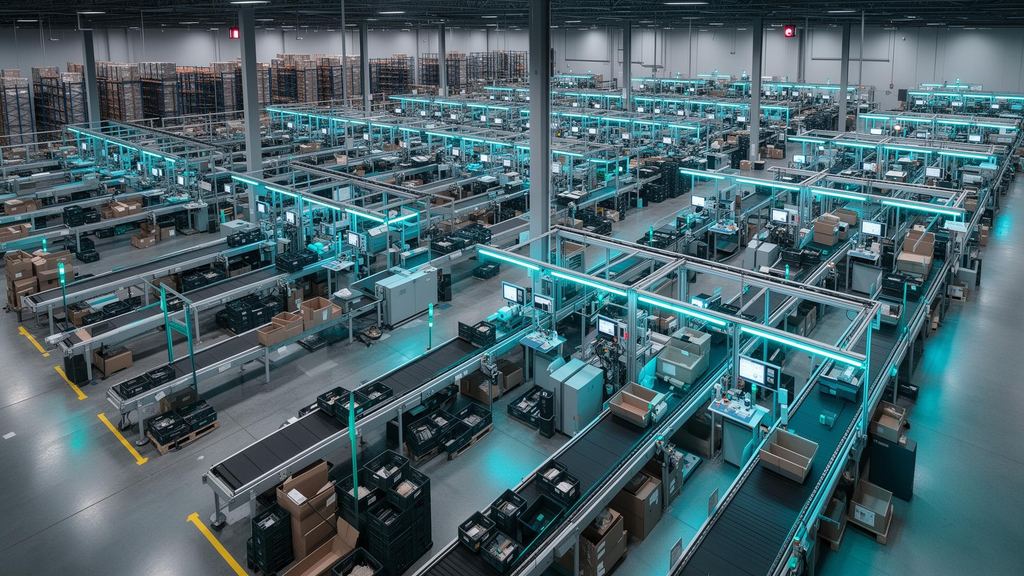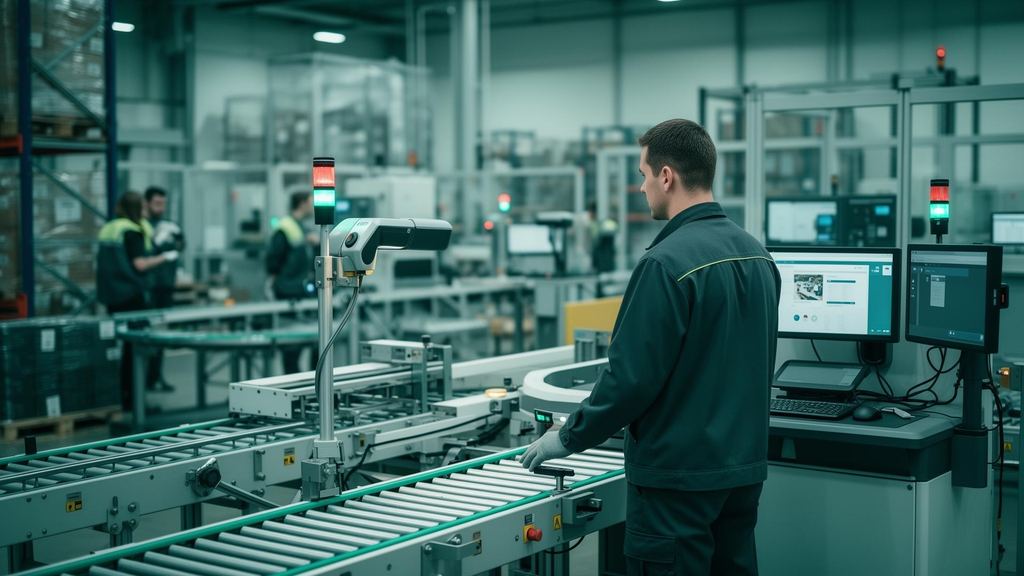// OPERATING_SYSTEM
The Productiv Operating System
Three operational capabilities. Two deployment models. One philosophy: operations should improve over time—not just keep up.

// CAPABILITIES
Operational Capabilities
What we do—the systems and services that drive throughput, quality, and cost improvement.
Omnichannel Fulfillment
End-to-end order fulfillment across all channels—DTC, B2B, marketplace, and subscription.
Value-Added Services
Kitting, assembly, packaging, and customization that transforms inventory into market-ready product.
Performance & Modernization
Workforce performance, inventory precision, automation, and systems integration that compound improvement.
// DEPLOYMENT_MODELS
Two Ways to Deploy the Same System
Whether your operation runs in your facility or ours, Productiv owns execution and continuous improvement. The difference is where the work lives—not how it's run.

Productiv Network
Productiv runs your fulfillment operation inside our warehouse network using engineered workflows designed to improve as volume and complexity scale.
Best for:
- Brands and manufacturers outsourcing fulfillment
- Multi-channel or variable demand profiles
- Teams outgrowing transactional 3PLs
What Productiv owns:
- Fulfillment execution and SLAs
- Throughput, accuracy, and reliability
- Engineered workflows and layouts
- Automation and cost-per-order improvement

Embedded Operations
Productiv embeds teams inside your warehouse or production environment to run day-to-day execution and continuously improve performance over time.
Best for:
- Operations running in your own facility
- Teams constrained by management bandwidth or labor
- Environments that cannot pause for transformation
What Productiv owns:
- Execution and SLAs
- Throughput and quality
- Continuous process improvement
- Automation and tooling over time
Which Model Is Right for You?
If your operation runs in your facility, start with Embedded Operations.
If your operation should run in someone else's, start with Productiv Network.
If you're unsure, Productiv will help you evaluate both.
Different Locations. Same Accountability.
The difference between the two models is where the work happens—not how Productiv operates. In both cases, Productiv owns execution, improvement, and outcomes.
Deployment is a choice. Ownership is not.
Ready to talk?
Let's discuss which capabilities and deployment model fit your operational reality.
Schedule a Conversation